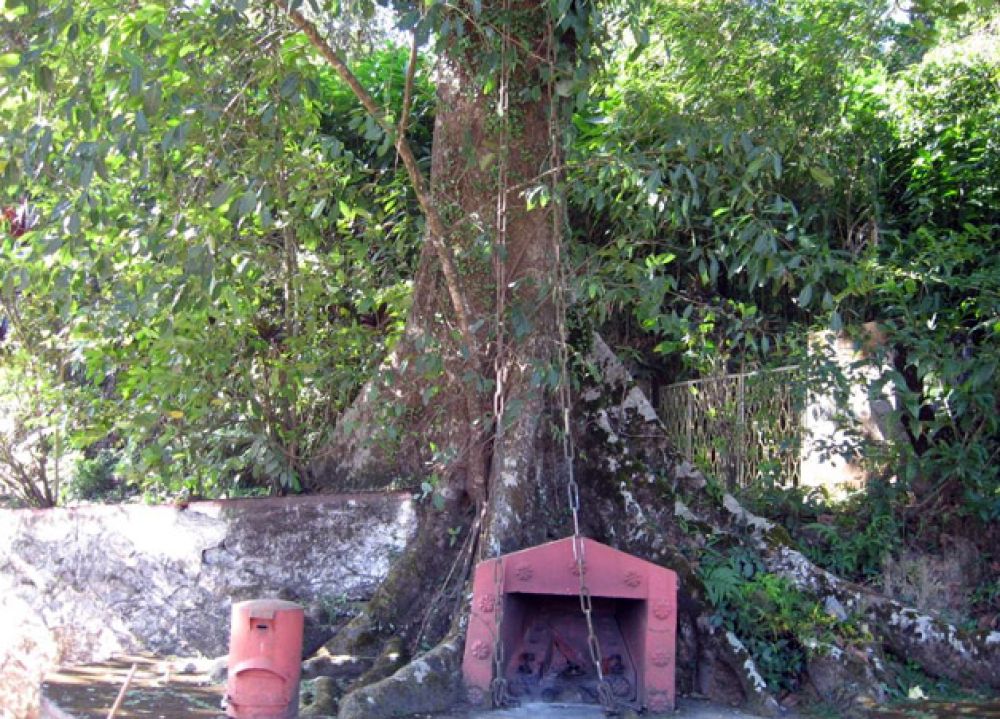

The Chain Tree of Wayanad, located in the lush green state of Kerala in India, holds an intriguing place in the annals of local lore and tourism history. Wayanad, known for its enchanting beauty and rich biodiversity, has always been a place of interest for nature lovers and explorers. The Chain Tree adds a mysterious charm to this beautiful landscape and has become a must-visit for anyone touring the region.
The story of the Chain Tree dates back to the British colonial era when a foreign engineer named Mr. F. G. Pearce was assigned the task of creating a road through the treacherous terrains of Wayanad. According to local legend, he was aided by a tribal youth named Karinthandan who knew the mountainous terrain like the back of his hand.
After the successful completion of the road, it is said, to claim the full credit, the engineer killed Karinthandan. The spirit of the young guide is believed to have started haunting travelers. To pacify the restless spirit, a priest was brought in who chained it to a small tree, which is now famously referred to as the Chain Tree. The original chain still drapes the banyan tree, growing with it as a testimony to this legend.
The name Wayanad itself means 'Land of Paddy Fields’ and through the years, tourism in this part of Kerala has transitioned from a focus on agriculture to a more diversified approach. Eco-tourism became a staple, with the Chain Tree playing a significant role in the way tourists perceive the folklore and cultural nuances of the area.
Initially, visitors to Wayanad were few, with the region being more of a hidden gem. However, over time, increased visibility through promotional campaigns and the development of infrastructure turned Wayanad into a favored destination for domestic and international tourists alike.
The Chain Tree continues to be an important stop for tourists, not just for its mystical story but also as a symbol of the deep connection between nature, history, and the local communities. It serves as a reminder of the myriad tales that the land of Kerala embraces.
Along with its cultural significance, the site provides a serene atmosphere attracting visitors who wish to witness the integration of human narratives with natural landscapes. The tree is a living monument, a piece of history that witnesses the evolution of tourism in the area.
In recent years, Wayanad has seen a shift towards sustainable and responsible tourism. Travelers are increasingly interested in experiencing local culture and contributing to the conservation efforts of the region. Homestays, organic farming tours, and wildlife conservation activities are gaining popularity.
Adventure tourism is also on the rise, with activities like trekking, mountain biking, and camping attracting the youth demographic looking for an offbeat experience. The Chain Tree, along with other historical and natural sites, forms part of an intriguing tapestry that makes Wayanad a unique find for the ethically conscious and adventure-seeking traveler.
From the mysterious tale that engulfs the Chain Tree to the rise of responsible and immersive tourism trends, Wayanad stands as a testament to Kerala's promise of offering 'God's Own Country' to the world. Visitors to the Chain Tree leave with not just photographs, but storied whispers of the past, the rustle of the sacred chains, and an appreciation of Wayanad’s continuing evolution as a premiere destination in the world of tourism.